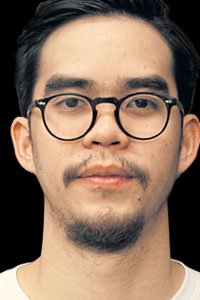
So, David Cameron in the UK is quitting and Prime Minister Prayut Chan-o-cha won't. Then came along Lionel Messi and England manager Roy Hodgson's sudden decisions to retire from their international duties. But one should not bring all this up again; all is settled at home, the man stood his ground.
"I won't resign. I set my own rules," Gen Prayut insisted this week about his next move if the draft charter fails in the Aug 7 referendum.
The premier was right. Mr Cameron was voted in, Gen Prayut picked himself. Different contexts, of course, and perhaps too forced an analogy to bring the sports world into this. Yet when Mr Cameron quit because voters rejected his proposal; when Messi retired following a penalty miss resulting in Argentina's loss in the Copa America final; and when Hodgson resigned after a humiliating defeat to Iceland, they had one thing in common: a sense of responsibility.

Kaona Pongpipat is a write for Life section, Bangkok Post.
Meanwhile, in our parallel universe, our premier didn't just stop at "I won't resign" but went further by questioning whether everyone should share responsibility for what happens in the country, asking: "Does the future of this country rest with me alone?"
And it is precisely with this rationale that we start wondering why we even bothered bringing all those "exit cases" up in the first place. It's Gen Prayut himself who made it clear that the future of this country rests with him alone.
Such reasoning leads to the conclusion that perhaps we have been asking too much, and demanding a pledge to take responsibility, should the draft charter fail in the referendum, is simply preposterous.
What can we still ask for then since resignation, an expression of political accountability and the custom for leaders in other civilised countries, is unrealistic.
In this critical time leading up to the referendum, the very least the military government can do is to work on changing the appearance of things. And the suitable role model for that, Gen Prayut will be pleased to learn, comes not from abroad, where people don't understand the uniqueness of the Thai context, but from home, and in no other form than our Bangkok governor MR Sukhumbhand Paribatra.
Minus the images of Aung San Suu Kyi waving to her fellow Myanmar people amid the rain, the most sensational shot from last week's news is that of our governor submerged in thigh-high flood water.
A video clip showed MR Sukhumbhand, after a day of field work, pick up his bright yellow rubber boots to pour out flood water.
All this was done almost in slow motion, as if wanting to make sure TV crews captured every moment on camera -- his exhausted yet beaming face, his drenched trousers and water slowly gushing out of his boots.
For a moment, we almost forgot that this is the man whose office was given a 16-million-baht refurbishment and who once suggested that Bangkokians either deal with regular floods or move to a hill.
While MR Sukhumbhand wades through water that, in his own words, was "waiting to be drained", what the government should be doing is less obvious in terms of what they are vying for in the upcoming referendum and adopting an equitable attitude toward both "Vote No" and "Vote Yes" sides. This is by no means to legitimise the draft charter, as that was off the table a long time ago, but to at least make the referendum process, and the atmosphere surrounding it, less difficult than it already is.
Gen Prayut's recent warning given to both Jatuporn Prompan and Suthep Thaugsuban over their views on the draft charter aired on Facebook is indeed a good start, but there's a lot more to work on. All too common are the cases in which students, activists and academics from the "Vote No" camp have been silenced and arrested by the police and soldiers who all seemed happy to accept whatever actions the "Vote Yes" camp takes, including Mr Suthep's daily Facebook broadcasts.
All this discussion somehow brings to mind a series of art works entitled Freedom Cannot Be Simulated by internationally-renowned Thai artist Rirkrit Tiravanija, currently on display at the Bangkok Art and Culture Centre. In this government's case, Rirkrit could be wrong and a simulated form of reality could be the way to go. Releasing the students or giving Mr Suthep more than a slap on the wrist would create the impression of neutrality that the authorities could benefit from.
Everything being simulated will just have to do for the time being. Simulated freedom, simulated fairness, simulated respect for human rights, and so on.
